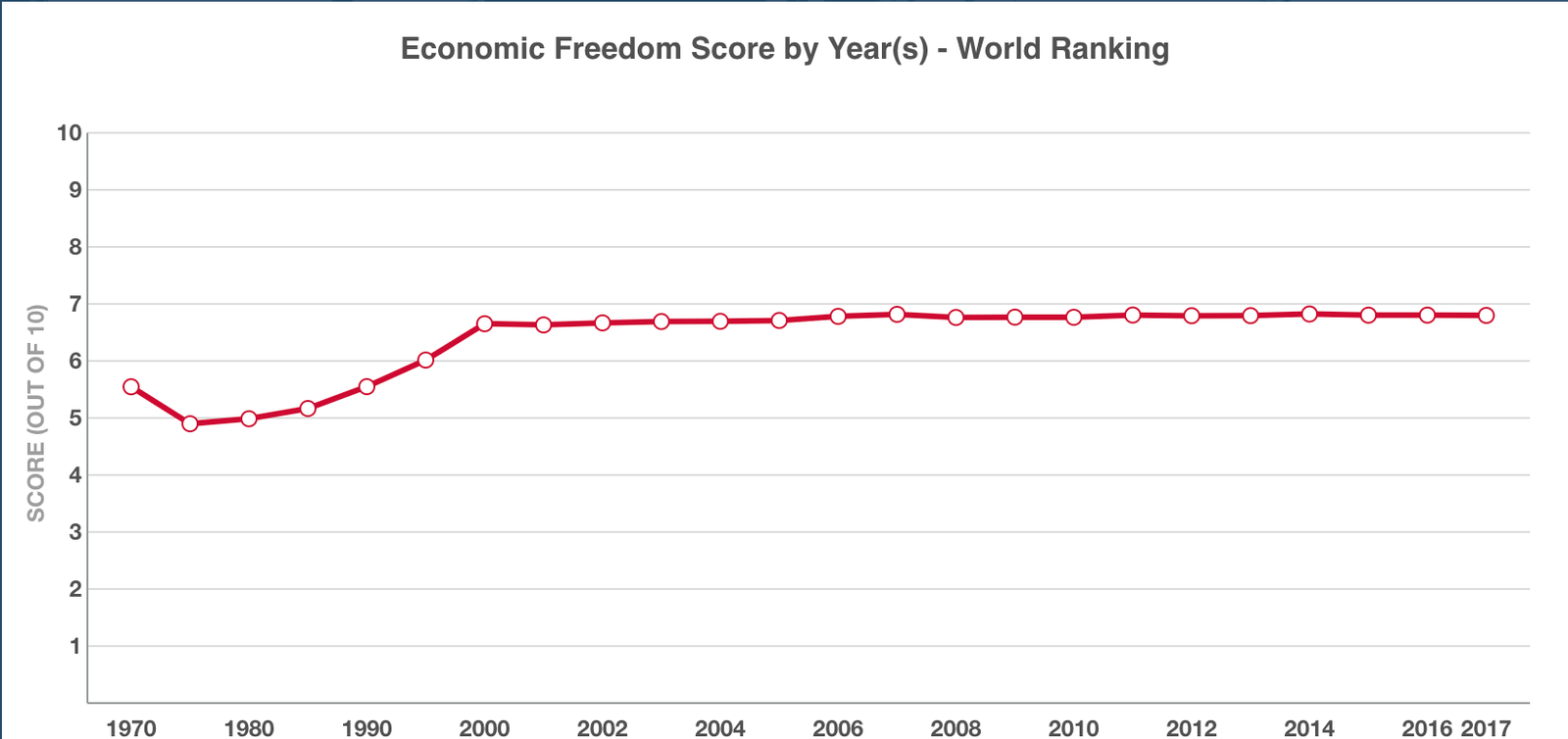The Bahamas’ overall ratings dropped from 7.36 to 7.25
NASSAU, BAHAMAS — The Bahamas now ranks 58th out of 162 countries and territories included in the Economic Freedom of the World: 2019 Annual Report.
The report was recently released by The Nassau Institute in conjunction with Canada’s Fraser Institute.
The cornerstones of economic freedom are personal choice, voluntary exchange, freedom to enter markets and compete, and security of the person and privately owned property. Forty-two data points are used to construct a summary index and to measure the degree of economic freedom in five broad areas.
The Bahamas’ overall ratings dropped from 7.36 to 7.25. The most significant categories where declines occurred were the size of government, and the legal system and property rights.

Size of government: changed to 7.25 from 7.36 in the last year’s report.
Legal system and property rights: changed to 8.10 from 8.29.
Access to sound money: changed to 6.88 from 6.78.
Freedom to trade internationally: changed to 6.54 from 6.71.
Regulation of credit, labour and business: changed to 8.22 from 8.17.
Hong Kong and Singapore once again sit atop the index, continuing their streak as 1st and 2nd respectively.
New Zealand, Switzerland, United States, Ireland, United Kingdom, Canada, Australia, and Mauritius round out the top 10.
The Fraser Institute produces the annual Economic Freedom of the World report in cooperation with the Economic Freedom Network, a group of independent research and educational institutes in nearly 100 nations and territories.
It is the world’s premier measurement of economic freedom, measuring and ranking countries in five areas: size of government, legal structure and security of property rights, access to sound money, freedom to trade internationally, and regulation of credit, labour and business.
The index published in Economic Freedom of the World measures the degree to which the policies and institutions of countries are supportive of economic freedom.
The report was prepared by James Gwartney, Florida State University; Robert A. Lawson and Ryan Murphy of Southern Methodist University; and Joshua Hall, West Virginia University.
It is based on data from 2017 (the most recent year of available comparable data) and measures the economic freedom (levels of personal choice, ability to enter markets, security of privately owned property, rule of law, etc.) by analyzing the policies and institutions of 162 countries and territories.
The 10 lowest-rated countries are: Iraq, Republic of Congo, Egypt, Syria, Democratic Republic of Congo, Angola, Algeria, Sudan, Libya, and lastly Venezuela. Some despotic countries such as North Korea and Cuba can’t be ranked due to lack of data.
The rankings of some other major countries are Japan (17th), Germany (20th), Italy (46th), France (50th), Mexico (76th), India (79th and Russia (85th).






